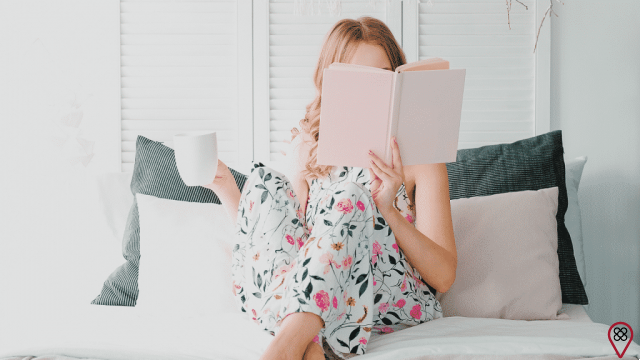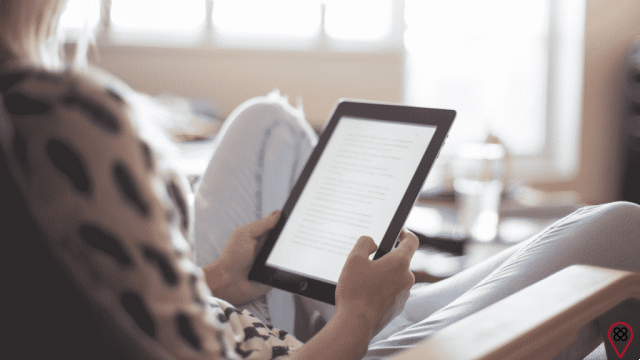Taking advantage of the month in which the Reader's Day is celebrated, I share here some indications of books that helped me on my path to self-knowledge.
The internet is very tempting, because it gives immediate “rewards”: you read it in three minutes, you feel good or informed with what you read, and you can move on to the next reward. But this has lessened our attention spam, which is the length of time an individual is able to focus on a task.
Before I start, therefore, I would like to give you some tips that helped me continue to enjoy reading and reading what matters:
a) If a book doesn't make sense to you, you're allowed to put it down and move on!
It seems obvious, but sometimes we stop reading because that one copy we were reading is no longer interesting. Faced with so many options available today, so many formats, and at a time when many of us have a little more time (perhaps what we used to get from work to home), it would be a shame to be discouraged simply because we have a belief that we need to finish what we started reading.
This happened to me not long ago, when I started reading a famous book on introversion, and at a certain point I realized that I wasn't saying anything I didn't know.
b) To have heard is not to read

Sometimes we see so many references to a book that we think we are already familiar enough with it. But having heard about a book, seen reviews of it or some posts on Instagram is not the same as reading!
In coaching we say that what triggers insight in one person will not necessarily trigger it in another. What the person who made the post thought was interesting may not be exactly what you needed to hear and what will trigger that transformation in you.
c) Read it again, with new eyes
I had a therapist who sent me a lot of material to read/watch. When I said, “I've read that,” he would reply, “I read it when you were someone else. Read it again, now that you are that person.”
Do you know the phrase of Heraclitus: “No man can bathe twice in the same river, for the second time neither the river is the same, nor the man is the same”? That's what we're talking about here.
d) Find your preferred format
I just like to read physical books. I like to annotate, to mark, to write, to summarize.

My husband liked to use the time he was driving to work (before the pandemic) to listen to audiobooks. Honestly, he read almost a hundred books a year! This format doesn't work for me. I travel in thoughts and when I see it, a whole chapter has passed.
There are people who like the convenience of reading apps: taking them anywhere, without carrying too much weight; have several books available.
e) You don't need to read one book at a time
I usually read a lighter book simultaneously, for when I don't want to think too much – a novel, for example; a book that has to do with spirituality, and a book to get my feet back on the ground, so to speak: it could be a book about finance, history, something like that.
That way, you don't get tired, the reading doesn't get heavy and it becomes harder to give up.
Now, to the point:
1) A New World – The Awakening of a New Consciousness – Eckhart Tolle
It was very difficult to decide between this book as number 1 on the list and its biggest hit, The Power of Now.
I tried to read The Power of Now about ten years ago and found it very dense. I really wasn't prepared. It was when I read A New World that I was able to understand and open myself to what this great contemporary professor has to say.
Nothing is more perfect than this moment of world change to read a book that talks about transition, what our part is and how we can prepare for it.
2) The Power of Now – Eckhart Tolle
This master's best-known book contains explanations about consciousness, ego, the pain body, the origin of suffering and, above all, presence. It's an important book, no matter what you believe.
A hint: the difference between the ego and the painbody is that in the painbody you have already become aware of a pattern, say, envy. In the ego, this is still unconscious.
3) Psychology of the Soul – Joshua David Stone
This must be the book I use most in practice, in my work. Written in simple language, it walks through the explanation of the four bodies, conscious, unconscious, and has a very interesting chapter on hypnosis and how we often don't know that we are being hypnotized.
My favorite part is a list of ego attitudes vs spirit attitudes. For example, knowing that on one list was laziness and on the other was discipline helps me fight procrastination.
4) Becoming Black – Neusa Santos
I first heard about this work last year, late in life, and it was really essential to recognize my behaviors as a black person.
Through the stories of people that psychologist Neusa Santos interviewed, the book explores questions about black identity, race denial, and the emotional life of the black person.
5) The Five Emotional Wounds – Lise Borbeau
The book deals with emotional wounds we carry from childhood, such as rejection, abandonment, humiliation, injustice and betrayal.
Such wounds show up in the body and are carried into our relationships. The way we choose our partners influenced by these wounds is really revealing.
6) Taking Life in Your Own Hands – Gudrun Burkhard
The author explores the seven years (cycles of seven years) through the vision of Anthroposophical Biographical Therapy (or Counseling).
With the stories told in the book, analyzed by Burkhard, you will have tools to look at your own biography in the light of this transformative philosophy.
In the end, the author tells her own life story – one of the most honest things I've ever read.
7) The Artist's Path – Julia Cameron
I had the opportunity to explore this book in a course on creativity. The differential of this work is to unite two subjects: creativity and spirituality, in addition to talking about autonomy, personal power, integrity and other things that you would never imagine appearing in a book on the subject.
8) Dom’s Girlfriend – Dulcineia Santos
It wouldn't be fair to me not to put my own book on the list! 🙂 How can I not say how much writing this book helped on my path of self-knowledge?
You may also like
- Find out if the book can influence your life
- 4 Books You Must Read to Exercise Your Mind and Body
- Learn more about therapy using the book
The book where I talk about the lessons I learned from my relationships was a healing process – very much guided by Gudrun's book above as well.
In it, I invite the reader to look at her own journey, observe those moments when life seems to repeat itself with different characters, and draw her own conclusions about the lessons she needs to learn so she doesn't have to repeat them anymore.

























